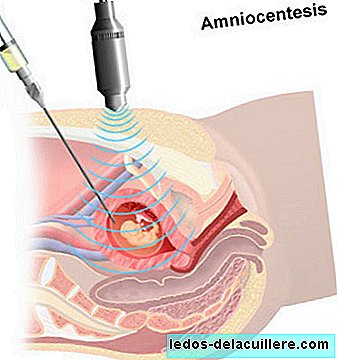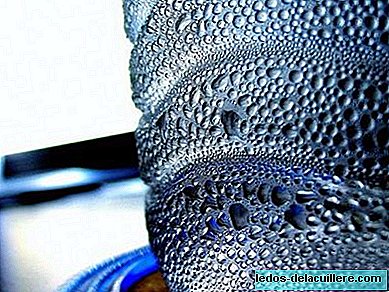
How many times will we have thought, "Was that really done in the past?". I believe that amniocentesis will be one of those things that our older children will ask us "Is it true that you had to prick the pregnant gut with a needle until you reach the vital space of the baby to detect any genetic disease?"
And over with life risk for the baby, which although it is minimal, they say, it is estimated between 0.2 and 0.5% chance of having a miscarriage after puncture, which is one in 200 cases . Little yes, but who has to lose his son does not care about statistics.
But for now it is what we have. Amniocentesis is, for now, the most reliable method of detecting metabolic and chromosomal abnormalities such as those that cause Down syndrome, Edwards syndrome or Patau syndrome. It is usually done to future mothers over 35, who have genetic diseases or have a family history of chromosomal abnormalities.
Fortunately, the end of this invasive test seems to be getting closer. I say fortunately because although it serves to rule out and detect defects in the fetus and prepare parents for what is coming, babies also die because of it.
The hope is set in a non-invasive diagnostic test that, as Eva told us in more detail last days, consists of a simple analysis of the mother's blood, which contains 10% of the fetus's floating DNA.
The studies are still in the experimental phase. Hopefully the work of scientists will come up with the formula so that we can soon have a way to detect serious diseases without risk to the mother or the baby.












